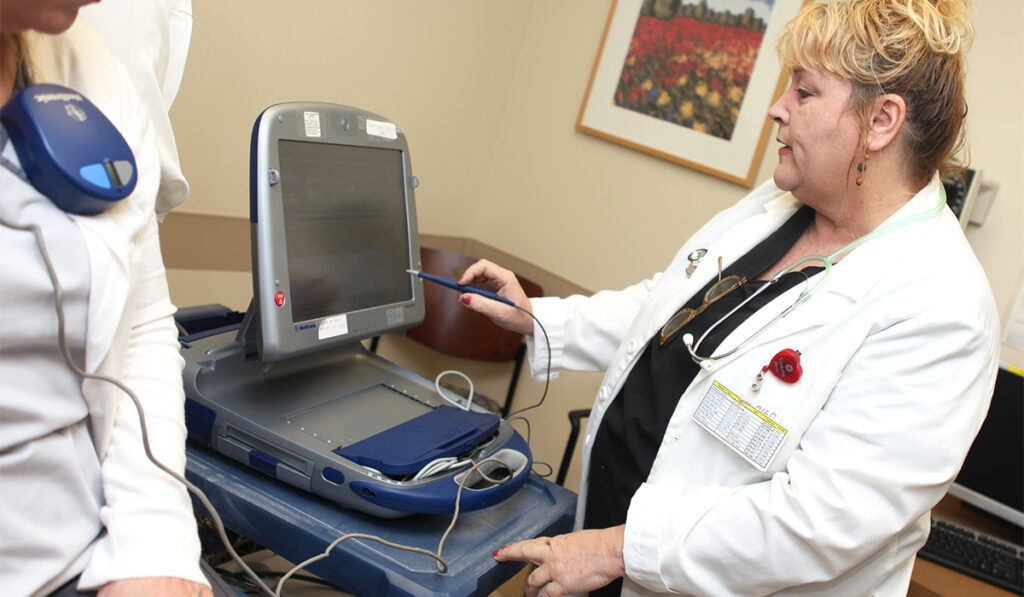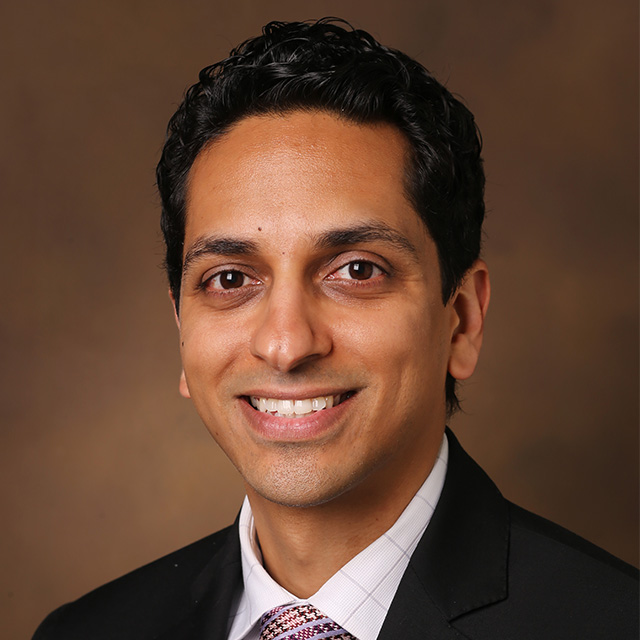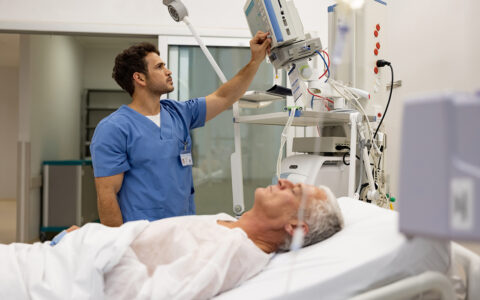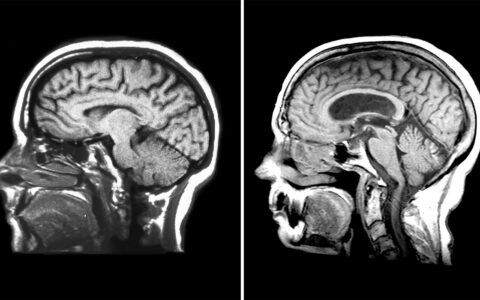Vanderbilt University Medical Center is involved in a number of trials on stroke and aneurysm treatment methods that are new or lack large randomized controlled trials.
Neurosurgeon Rohan Chitale, M.D., is a leader in ensuring robust enrollment.
Here, Chitale shares an overview of the top-line news on these trials and their potential impact.
Discoveries: What are the criteria for Vanderbilt’s cerebrovascular team in choosing research study topics?
Chitale: Through our clinical trials, we are aiming to improve care for the cerebrovascular diseases that severely affect large number of people, including ischemic stroke, hemorrhagic stroke, brain aneurysms, and subdural hematomas. The trials attack these diseases on multiple fronts, including through cutting- edge endovascular care and investigative medical therapies.
Discoveries: Would you give us the highlights on each trial domain, starting with hemorrhage treatment?
Chitale: There have been many studies on treatment of intracranial hemorrhage and how to best evacuate hematomas, but none of those trials had found efficacy. We just finished enrolling in ENRICH, which is a multicenter study aimed at testing the efficacy of minimally invasive evacuation of intracerebral hematomas (ICHs). Progress in surgical treatment has been elusive with this disease, but early findings on this technique show promise.
We are also enrolling participants in the REASSESS trial, which is a longitudinal study aiming to see if evacuation of ICH leads to long-term improvement in cognitive, functional, and neuropsychiatric performance.
Discoveries: What are you seeking to learn from your aneurysm trials?
Brain aneurysm treatment is invariably a high-risk procedure, whether performed with open microsurgery or by endovascular means. We are participating in a new registry, KEEP, which allows us to test whether the advancements in softness and shapes of endovascular coils can help improve safety and efficacy of treatment of these patients.
Vasospasm is a significant source of morbidity from stroke in patients with subarachnoid hemorrhage from ruptured aneurysms. Through a trial run out of Vanderbilt, we have worked to identify whether acetaminophen inhibits lipid peroxidation and possibly the occurrence of vasospasm in these patients. Work from this study will provide a basis for a larger multicenter study to assess its affect clinically.
Discoveries: You are also in trials of new endovascular treatments for stroke. What are the advancements we may see emerging from these?
Chitale: A new era of endovascular treatment for stroke was initiated back in 2015, with trials showing that retrieving the clot improved outcomes dramatically. Now we’re pushing the boundary of that by reaching in with new devices that can treat smaller blockages.
These advancements, which we can extend through our telehealth relationships with community hospitals, enable us to act more quickly to help more people.
To help find out if going after smaller blockages is effective, we will be involved in a large multicenter trial, DUSK.
Discoveries: How else is the Vanderbilt team investigating stroke prevention and treatment?
Chitale: We are also enrolling for a large multicenter registry called EXCELLENT, looking at mechanical thrombectomy in a real-world setting. This trial helps to track outcomes and also explore correlations between patient comorbidities, procedure success rates, and clot characteristics.
Besides acute treatment of stroke, we also are involved in helping patients who have already suffered from stroke.
To see if endovascular therapy is better than medical management of patients with disability, we plan to also enroll in another new study, TESTED.
We are also a center for the large CREST II study, aiming to identify whether revascularization with stenting or endarterectomy is effective to prevent strokes in patients with asymptomatic carotid stenosis.
Besides acute treatment of stroke, we also are involved in helping patients who have already suffered from stroke. For better ways to control edema, the CHARM trial looks at functional outcomes of IV glibenclamide for reducing cerebral edema following large hemispheric infarction.
Discoveries: Are there other trials of note that we are leading?
Chitale: There are many in the pipeline, including trials of treatments for idiopathic intracranial hypertension and hydrocephalus. However, one that we are excited about is looking at treatment of chronic subdural hematomas, which traditionally has a high rate of recurrence after surgical evacuation.
With an aim of reducing recurrence, we are leading enrollers in the MEMBRANE trial on the efficacy of embolization of the middle meningeal artery (MMA) in reducing recurrence, with or without concomitant surgical evacuation.
There have been strong signals from case studies and small cohorts that this may work. If this study is positive, that would totally change the way that we treat subdurals. In these randomized trials, we’re even testing to see whether the MMA embolization can do the job alone for otherwise non-operative subdurals.
Discoveries: Can we expect preliminary or published findings from these trials soon?
Chitale: All the above trials are enrolling, active or completed. Some, like CREST-2, ENRICH, and CHARM are complete or nearing completion, and we expect preliminary findings in the near future.
Being able to provide meaningful, evidence-based treatment to more and more patients can be the difference between life in a nursing home versus functional independence and being able to contribute to their community. That’s what drives us to want to be part of these trials and make a lasting impact.





